U.S. can now rapidly expel some Venezuelan migrants to Mexico under Title 42
The Department of Homeland Security announced plans that would allow U.S. officials to rapidly expel some Venezuelan migrants into Mexico in an effort to reduce the record number of people arriving at the southern border.
Any Venezuelan migrants who enter the U.S. between ports of entry and without authorization will be sent to Mexico effective immediately, the agency stated Wednesday.
The announcement includes plans for a humanitarian program that would allow up to 24,000 Venezuelans into the country, given they have a supporting sponsor in the U.S. and after completing a rigorous application process.
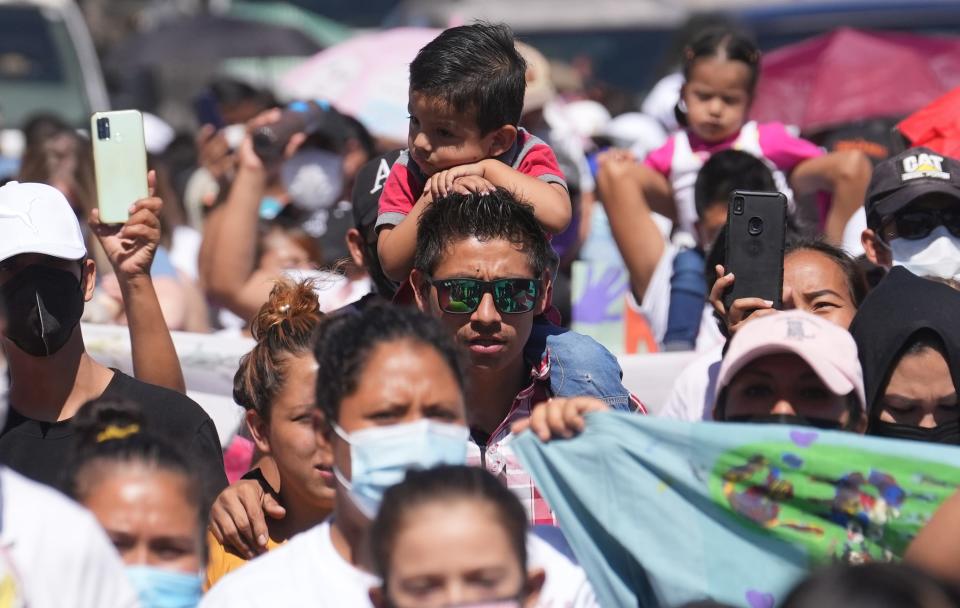
Applicants who are approved will be able to fly directly into the U.S. and apply for work authorization, DHS stated.
“These actions make clear that there is a lawful and orderly way for Venezuelans to enter the United States, and lawful entry is the only way,” said Secretary of Homeland Security Alejandro Mayorkas in a written news release. “Those who attempt to cross the southern border of the United States illegally will be returned to Mexico and will be ineligible for this process in the future.”
Title 42 protest: Hundreds march in Nogales, Sonora, to protest pandemic restrictions, Border Patrol abuses
Advocates have denounced the program as nonsensical and discriminatory, saying that the expansion of Title 42 will only further endanger asylum seekers’ safety as they attempt to cross through more dangerous avenues or face danger as they wait in Mexican border communities.
Title 42 is a U.S. Code that relates to public health and welfare. Under section 265 of the code, the surgeon general, or in this case the director of the Centers for Disease Control and Prevention, can prohibit the entry or "introduction" of non-citizens in the interest of public health if there is a "quarantinable communicable disease" in a foreign country and "serious danger" that it can be introduced into the United States.
The clause was enacted as part of the Public Health Service Act of 1944, but was rarely used before the COVID-19 pandemic that began in 2020.
The expansion of the health policy by the Biden Administration comes months after President Joe Biden tried to rescind Title 42 in May. A federal judge in Louisiana blocked the administration’s efforts, leaving the policy in place indefinitely.

“While we applaud any efforts to create safe and clear processing of asylum seekers, we do not support the way in which this is being done,” said Chelsea Sachau, managing attorney of the Border Action Team at the Florence Immigrant and Refugee Rights Project.
“It's just contributing to a border policy that has been very chaotic, confusing and incoherent, as well as discriminatory.”
The 24,000 applicant cap for the new program is largely overshadowed by the more than 155,000 total Venezuelans encountered nationwide in the United States so far in fiscal year 2022, according to U.S. Customs and Border Protection data.
“Based off of numbers that we're seeing at the border, that number will be easily overpassed,” Sachau said.
The total number of encounters includes people who have made multiple crossing attempts, which somewhat overstates how many unique people are actually arriving at the border.
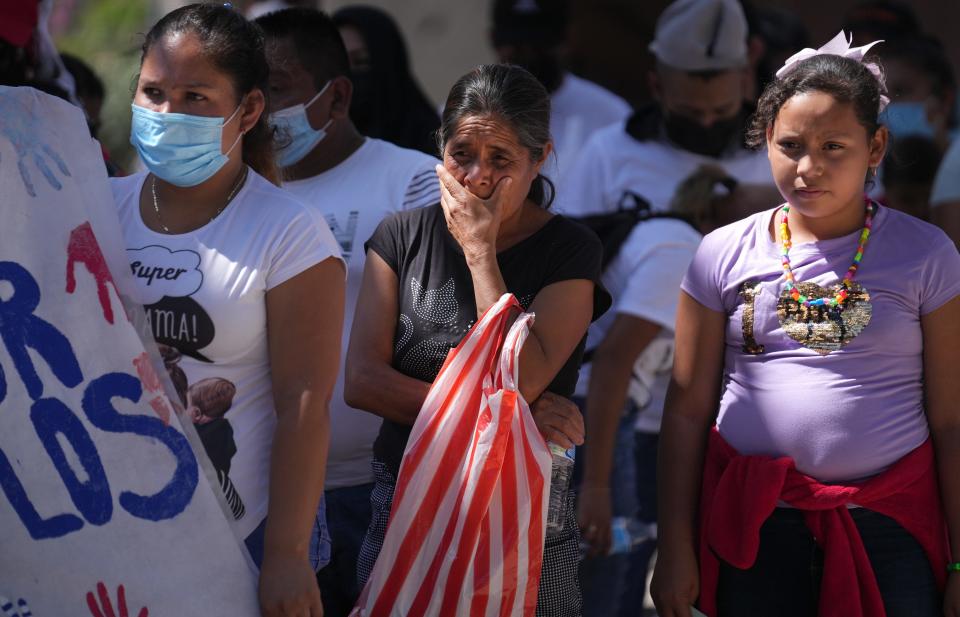
The number of Venezuelans encountered at the border nationwide has sharply increased in the past few months, according to CBP data. Unique encounters of Venezuelans, which excludes people who had a previous encounter in the past 12 months, rose 293% between fiscal years 2021 and 2022, according to DHS.
Report:Border Patrol unprepared for 'double' the migrants when pandemic restrictions end
More than one-quarter of Venezuela’s population has left the country, according to DHS.
“Failing communist regimes in Venezuela, Nicaragua, and Cuba are driving a new wave of migration across the Western Hemisphere, including the recent increase in encounters at the southwest U.S. border,” CBP Commissioner Chris Magnus said in a news release.
The expansion of Title 42
Mexico had previously refused to accept Venezuelans under Title 42, the pandemic health policy instituted in March 2020 that allows CBP to rapidly expel migrants and asylum seekers to Mexico or to their home countries.
Before the announcement, only migrants from Mexico and the Northern Triangle countries of Guatemala, Honduras and El Salvador could be returned to Mexico under the health policy. Strained U.S. relations with Venezuela made it difficult for authorities to send people back to the country.

Under the health policy, official ports of entry along the U.S.-Mexico border are mostly closed to asylum seekers, with few exceptions made through humanitarian parole. The policy has led to asylum seekers having to present themselves to Border Patrol agents between ports of entry.
Border vision: What would Kari Lake and Katie Hobbs do at the border? Candidates have sharply different approaches
Advocates and asylum seekers have decried Title 42, which has impeded migrants’ ability to seek asylum in the U.S. and forced them to wait for months in Mexican border communities, facing discrimination and dangerous conditions.
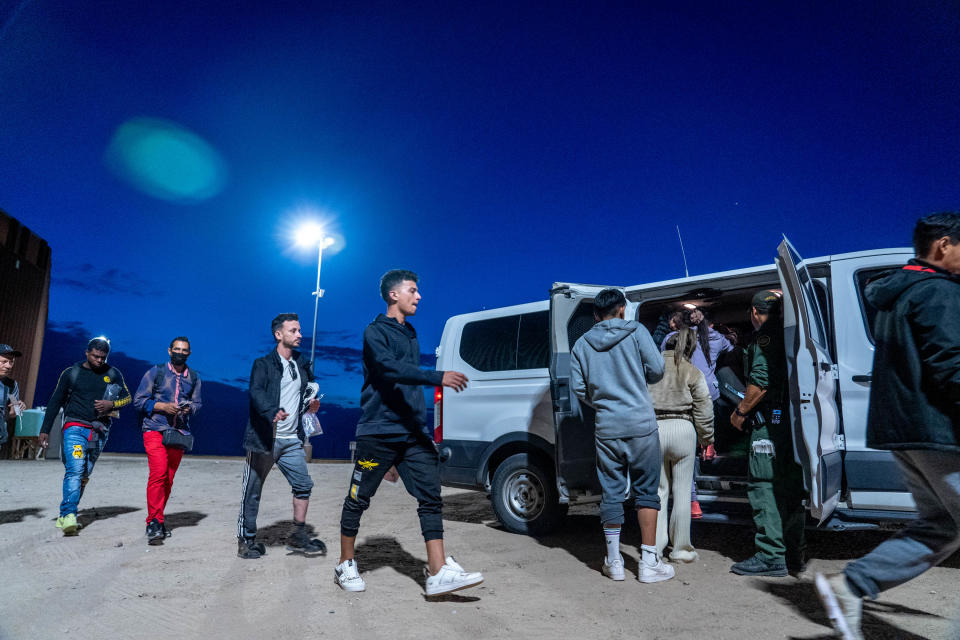
More than a million people have been expelled from the U.S. under Title 42 so far in fiscal year 2022, according to CBP data.
“People die and are harmed every day because of Title 42,” Sachau said. “(The program) will not work because it's, at the end of the day, expanding Title 42 to more people, and that will put more people in severe danger and result in more lives lost.”
How will the program work?
The new process is modeled after the program created in April for Ukrainians fleeing their country after Russia’s invasion. To be eligible for the program, Venezuelans must have someone in the U.S. willing to provide financial and other support.
Applicants must also go through stringent biometric and national security vetting as well as complete vaccinations and other public health requirements.
Venezuelans are ineligible to apply for the program if they have been removed from the U.S. in the previous five years, have crossed between ports of entry without authorization after the DHS announcement or have improperly entered Panama or Mexico after the date of the announcement.
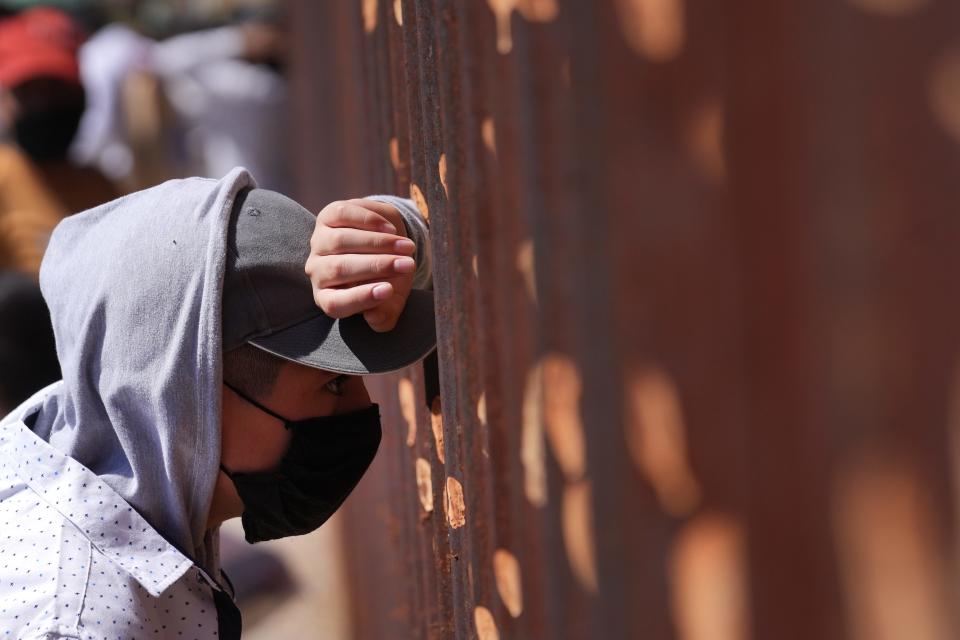
Applicants are also ineligible if they are a permanent resident, dual citizen or hold refugee status in any country other than Venezuela.
Weapons lawsuit: Mexico sues 5 Arizona gun dealers accused of role in weapons trafficking
Sachau dismissed the new program as discriminatory against Venezuelans who don’t have contacts to sponsor them in the U.S. and migrants who may already have begun their journey from the country.
“It unfairly punishes the other Venezuelans who were already en route or already in Mexico and are, again, just seeking safety,” Sachau said. “They, too, deserve a chance to seek asylum, regardless of whether or not they have family here and whether or not that family has legal status.”
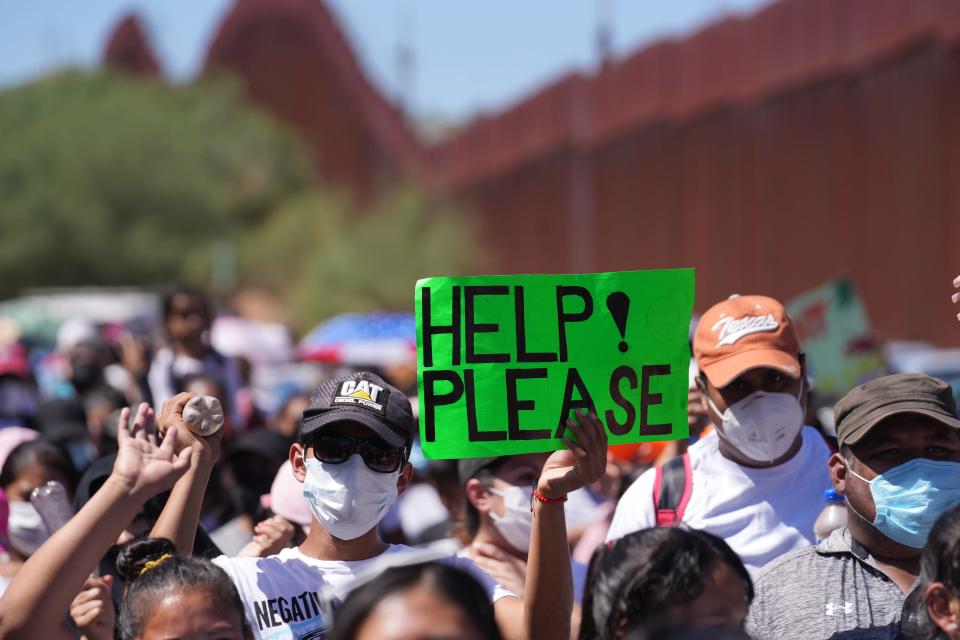
The new program is illogical, even for applicants who meet all of the eligibility criteria, Sachau said. It would be extremely difficult and dangerous for Venezuelans fleeing political persecution, for example, to attempt to get a passport and participate in the program, she said.
“It would be like flagging to the person and the entity harming you that you intend to escape them,” Sachau said.
Additionally, the program unfairly discriminates against nationalities, such as people from Northern Triangle countries, who have been subject to Title 42 for over two years without an agreement to help them seek asylum, she said.
“Asylum protection should never be limited to only people with those connections that have traditionally been based on nationality or socioeconomic status,” Sachau said.
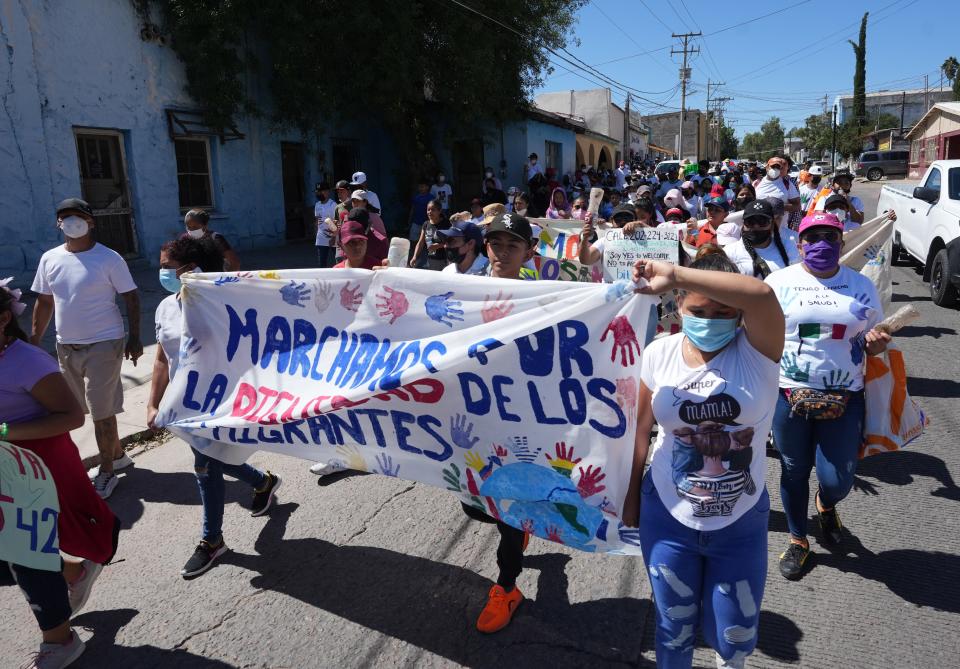
Sachau said the only real resolution to create a safe and organized asylum process is to fully restore access at ports of entry for migrants seeking asylum.
Have a news tip or story idea about the border and its communities? Contact the reporter at jcastaneda1@arizonarepublic.com or connect with him on Twitter @joseicastaneda
This article originally appeared on Arizona Republic: Title 42 expansion allows U.S. to send Venezuelan migrants to Mexico

